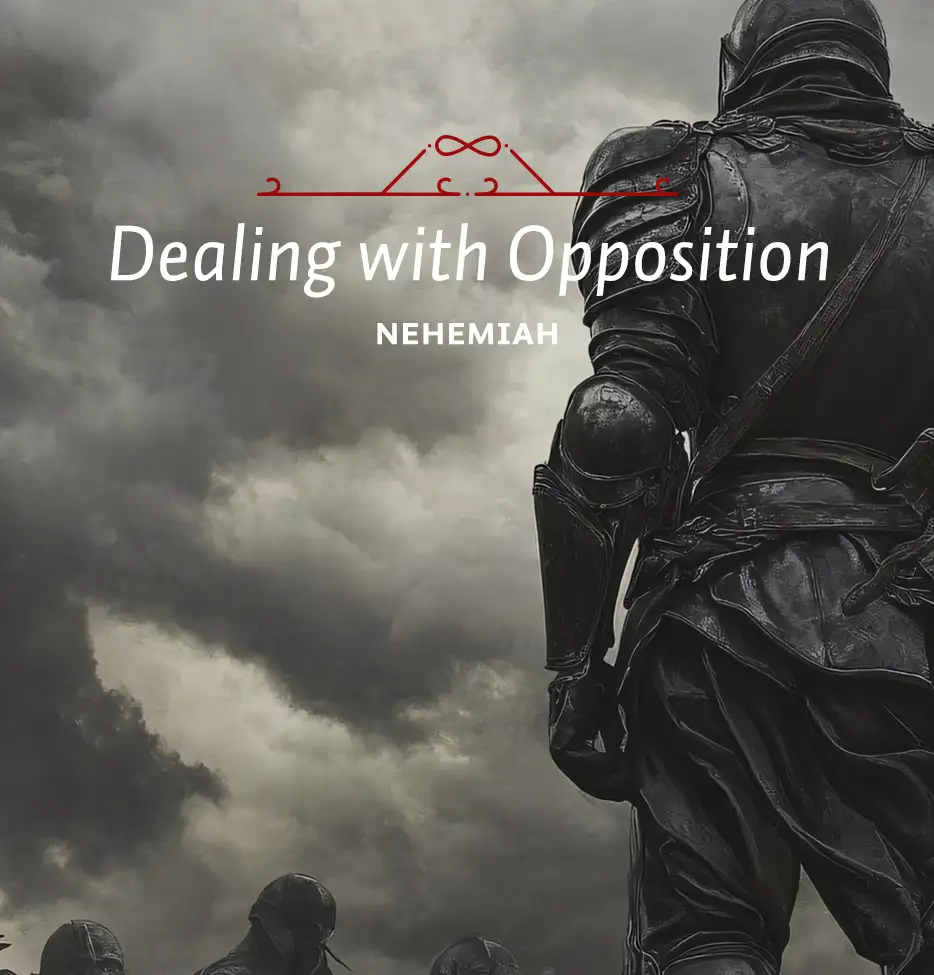In the light of the various reasons for opposition to a leader’s success, it is obvious that any leader, whoever he or she is, will always be opposed by others and should be prepared for it. This is the fifth dynamic of leadership. The first involves the leader and God; the second is the leader and his earthly superior or superiors; third, the leader and his subordinates; fourth, the leader and the task; and now, fifth, the leader and his opposition. In pursuing this last point we have seen eight reasons for opposition to a leader. We are now going to see the forms such opposition takes. In this and the next two chapters (chapters 4-6) we will see how opposition came to Nehemiah and how he successfully contended with many different forms of opposition and overcame it.
The easiest way to oppose something you do not like is to ridicule it, and this is the first thing Sanballat and Tobiah did. The text is vivid at this point, showing how Sanballat got Tobiah, his associates and the army of Samaria together and made fun of the Jews in what must have been a great public forum, saying, “What are those feeble Jews doing? Will they restore their wall? Will they offer sacrifices? Will they finish in a day? Can they bring the stones back to life from those heaps of rubble—burned as they are?”
Tobiah added, “What they are building—if even a fox climbed up on it, he would break down their wall of stones!” (vv. 2-3). The reason people ridicule those they oppose, aside from it being so easy, is that it is demoralizing and frequently effective. It is effective because it strikes at the hidden insecurity or weakness which almost everybody has. This is what was going on. Each of Sanballat’s five rhetorical questions and Tobiah’s taunt strike at a legitimate sense of weakness that Nehemiah and the others must have had.
How did Nehemiah deal with this attack? We need to see three things: one he did not do, and two he did.
First, he did not retaliate. The first thing most of us do when we are ridiculed is snap back. Nehemiah did not do that. If he had, he would merely have lowered himself to the level of his critics, and he would have come out second best since they were stronger and more important in the world’s eyes than he was.
Second, Nehemiah prayed. This is important not only because it means that he turned to God for help, as he always did, but because he did not merely bottle up his feelings or try to suppress them, which would have solved nothing. Rather, he poured out his soul before the Lord. He admitted that he was hurt and angry. Nevertheless, the work was God’s, and he was therefore able to put it into God’s hands and let Him be the arbiter of the dispute and the judge of the Jews’ opponents. “Turn their insults back on their own heads,” Nehemiah said. “Give them over as plunder in a land of captivity. Do not cover up their guilt or blot out their sins from your sight, for they have thrown insults in the face of the builders” (vv. 4-5).
What was the result of Nehemiah’s prayer? He does not tell us explicitly. But the first great benefit was undoubtedly that it diffused his anger, since he does not show anger as he proceeds. This was valuable because anger is seldom productive and is usually a hindrance to good work. In addition, the prayer must have restored Nehemiah’s perspective, if he was wavering. Instead of being thrown off by his enemies’ ridicule, he now recognized it for what it was—fear that under his leadership the Jews might actually succeed—and he understood that the best thing the Jews could do was press on with their task.
Third, Nehemiah went on with the work. Since he had left the taunts of his enemies with God, he no longer needed to be concerned about them and could get on with the task God had given him: “So we rebuilt the wall till all of it reached half its height, for the people worked with all their heart” (v. 6).






